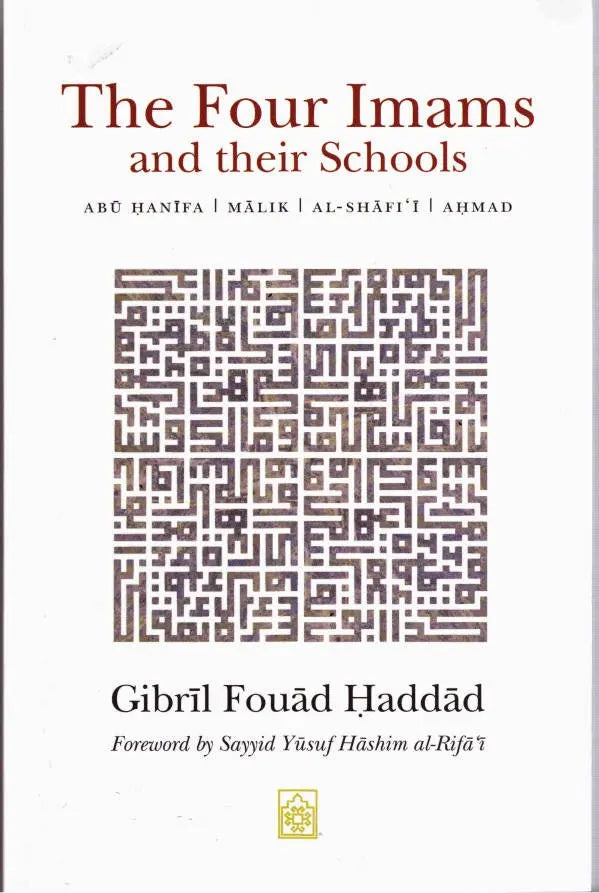The Great Edifice of Islamic Law is held up by four towering figures of the early middle ages: Abu Hanifa, Malik, al-Shafi’i, and Ibn Hanbal. Because of their immense dedication and intellectual acuity, these men enjoy recognition to this day as Islam’s most influential scholars.
By assessing and ranking hadith, by cultivating a deep knowledge of the Arabic language, and by virtue of their great native intelligence, they are credited with having shaped the development of the fundamental systems of Muslim jurisprudence, avoiding the twin pitfalls of subjective rationalism and blind literalism. By doing so they not only protected their religion from chaos and disorder but showed the Muslims, both ordinary and expert, the safest and most reliable ways of avoiding error in the understanding and practice of the divine law.
This detailed study offers biographies of these four men and their leading pupils. It surveys the distinctive features of their jurisprudence and assesses their achievement.
An especially helpful feature is a long and detailed glossary of Islamic technical terms. Meticulously rooted in the core texts of Islamic scholarship, this book will be an important resource for Shari’a students everywhere.
About Author:
Shaykh Dr. Gibril Fouad Haddad is a well-known scholar and religious leader. He is respected for his tireless effort and scholarship in defending and promoting the mainstream way of traditional Sunni Islam; for his erudite, meticulously-researched writings and translations; and his commitment to spread authentic Prophetic teachings, as understood by the great scholars of the Islamic tradition.
In 1960 in Beirut, Lebanon, Shaykh Haddad was born to a Lebanese Catholic Family. He later travelled to the UK and America to continue his education. In 1991, while attending grad school at Columbia University in New York, Allah Most High opened his heart to accept Islam.
It was in this same year that he met his teacher Mawlana Shaykh Nazim al-Haqqani of Cyprus, from whom he took the Naqshbandi tariqah. Shortly thereafter, he met Shaykh Hisham Kabbani, who guided him to begin his path in seeking sacred knowledge.
He went on to study for about a decade in Damascus, under many esteemed scholars such as Shaykh Nur Al Din Itr, Shaykh Adib Kallas, Shaykh Muhammad Al-Yaqubi, Shaykh Abd Al-Hadi Kharsa, Dr Samer Al-Nass and Dr. Muhammad Muti Al-Hafiz.
He is now an accomplished scholar, religious leader, author and Arabic translator and was listed amongst the 500 Most Influential Muslims In The World. He holds ijazas from over 150 scholars across the Muslim world.
show more

